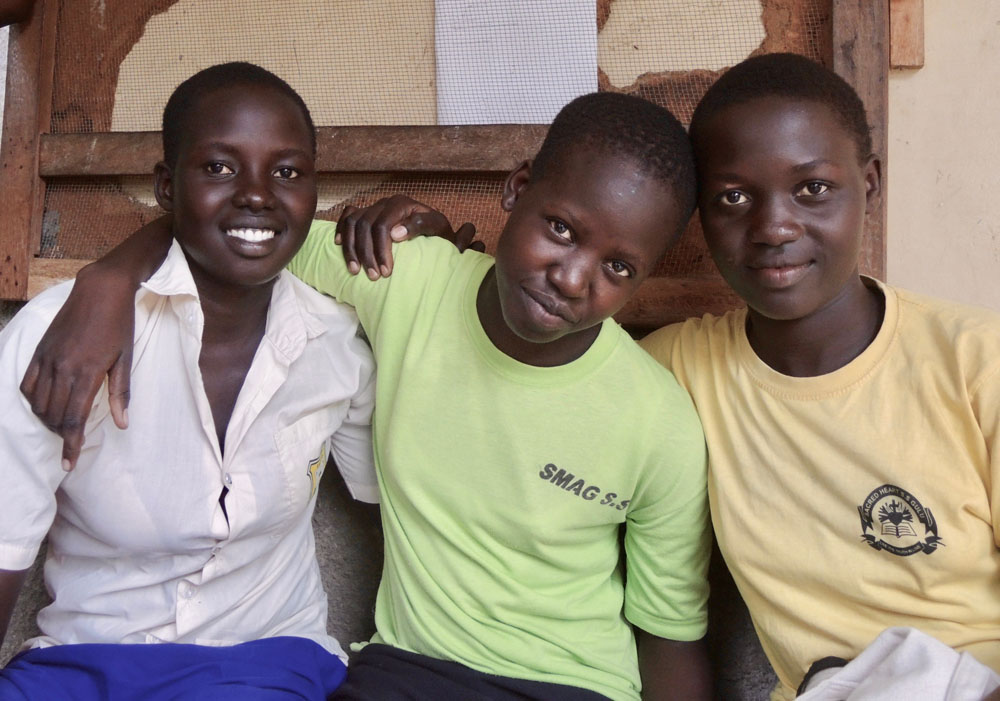People are on the move around the world, leaving their homelands for a better life, or often simply to save their own lives. War, violence and natural disasters are among the main reasons that people leave their loved ones and homes behind in hopes of safety, freedom and opportunity.
While most students have not experienced anything nearly as traumatic as the South Sudanese and Ugandans in this article, nearly all can relate to the feeling of being an outsider. They may need to find their way in new groups or teams, navigate the norms of a new school or move reluctantly when a parent finds work in a new town. They also might have refugees or immigrants arriving in their school and joining their teams and clubs.
Explore those experiences with your students and journey with them on a path toward greater empathy for the strangers we find among us. There’s a related story on Global Sisters Report about how South Sudanese students at a Catholic school in Uganda are coping with being refugees: Refugee students want 'a future after all the trauma they've had'
In small groups or in a whole-class setting, role play the following scenarios. Based on your knowledge of the students, consider whether to give them time to script and rehearse or to quickly improvise their responses. Work through this exercise in the order outlined below to stretch students from the familiar to the less comfortable:
- A new student is eating alone at a table in the lunchroom for the fourth time this week.
- A teammate targets a player on an opposing team for injury, colliding with them and knocking the wind out of them.
- A classmate has confided a secret to a friend, who then betrayed that trust. The student now is being teased and bullied, both in the hallways and on social media.
- A van with out-of-state license plates is stranded beside the highway. A man walks away with a gas can while a woman inside struggles to calm her children.
- You come to church early and notice a person curled asleep in the next pew. Their appearance and odor are hints they might be homeless. More parishioners begin to arrive.
- The leaders of your church or school decide to provide sanctuary to a family that has fled its homeland due to threats of violence. Family members fear they'll be killed if they're sent back.
After all of the scenarios have been acted out, ask students:
- What needs were present in each situation, and how might they best be met?
- Did your response change based on whether you've experienced something similar personally?
- What might keep you from responding in one or more of these situations?
- How might decisions we make or lessons we learn in simpler situations prepare us for tougher dilemmas?
- What experiences do you have of immigrants or refugees moving through or settling into your community?
- What have you discovered about their needs, fears and hopes?
Invite students to stand around a circle of chairs, set up like a game of "Musical Chairs" with one chair too few. Ask everyone to be seated, which will leave one standing. Allow time for students to react to that student with teasing, taunting or pity. Then declare that student the winner and present them with their prize — a chair placed among the others. Invite all students to turn their chairs inward, facing each other. Encourage them to silently reflect on times they've been left out or left others out.
Pray: "Lord, we thank you for our place in this circle and for a place in your kingdom. Your love for all people knows no limits or boundaries. There always is another place at the table, more room in your hearts. Give us hearts like yours. Fill us with the courage and love to become brothers, sisters and friends to the strangers among us. Amen."
Please give us your feedback! Fill out a quick survey about this lesson and how we can serve you better. Remember that its title is "Seeking refuge in Uganda"
Tell us what you think about this resource, or give us ideas for other resources you'd like to see, by contacting us at education@globalsistersreport.org
